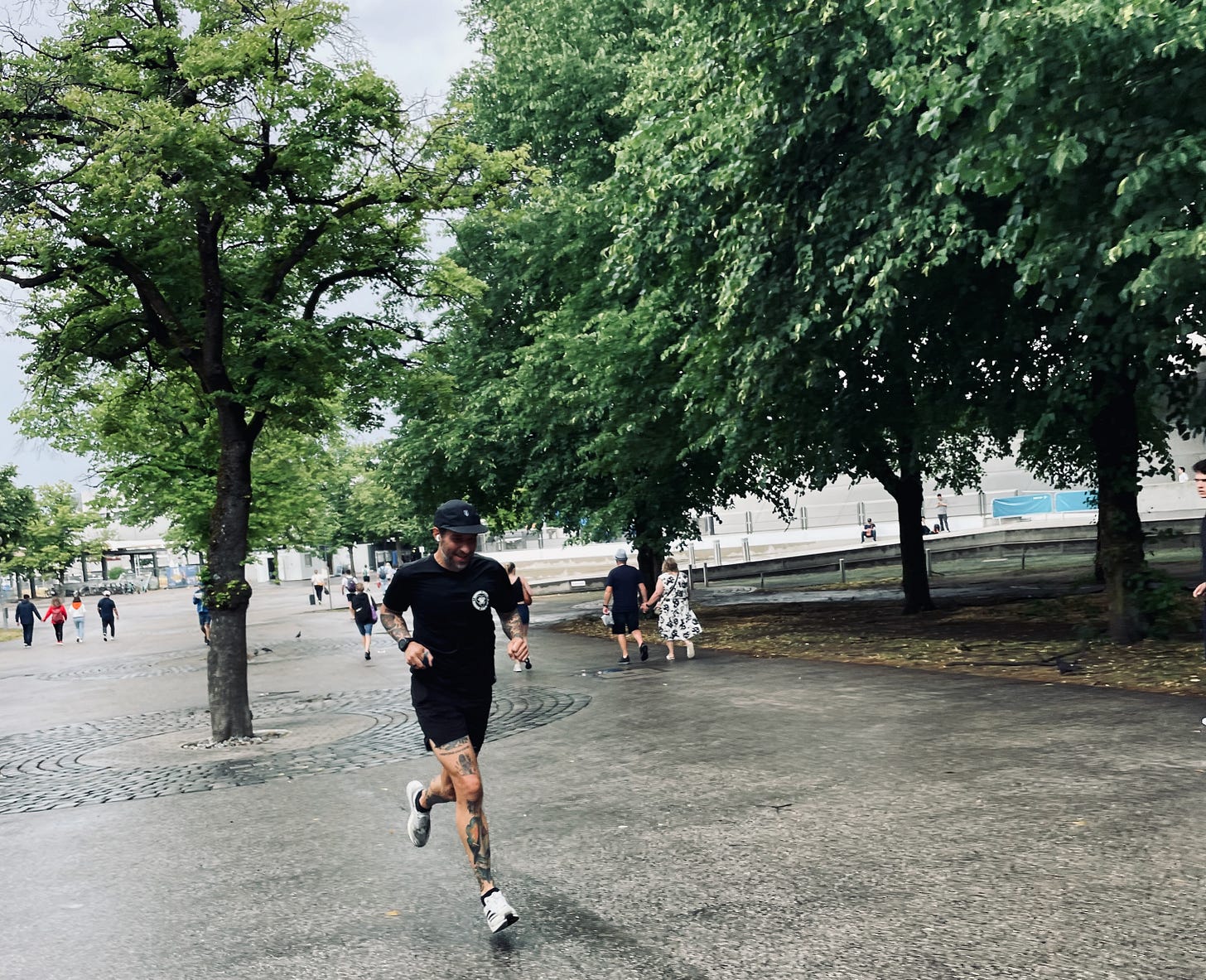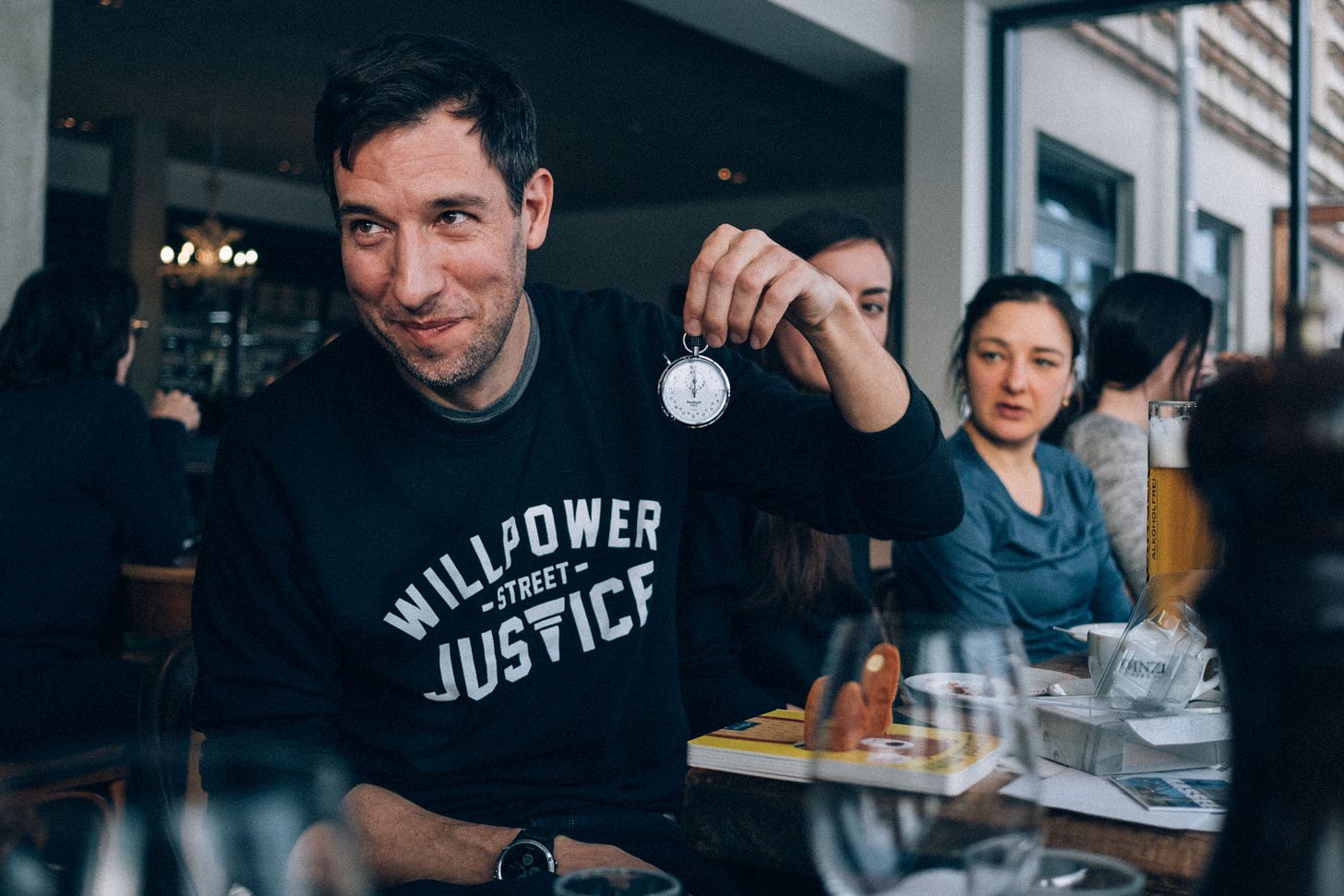Back at it
After a delightfully short transition phase (my coach Karim’s euphemistic code name for off-season), I am back to structured training now. Volume and intensity are slowly, but gradually, ramping up. Karim and I want to recalibrate what my body can take and where my new training threshold lies after my long injury.
Guess what, I absolutely love it. But at the same time, I am immediately caught up in my numbers game romance, again. I am just so much attracted to the measurability and comparability of running and latest since my dramatic VO2max article, I know that a lot of you feel the same.
Let me dig deeper into this topic, using the great example of a road marathon. You can use any other racing distance as well, but the marathon triggers us runners the most.
A marathon is a marathon
The facts: A marathon is 42.195 km (26 mi 385 yd) long, and the hours, minutes and seconds it takes you to get from start to finish, are your indisputable marathon time. Period.
But what does that actually mean? What does it say about you as a runner? In what way does it mirror the results of your training? How does it reflect how much you pushed yourself on race day? And does it say anything about your talent?
Don’t get me wrong. A marathon is always a great accomplishment, regardless of your finish time. Yet still, every finish time tells a story. You don’t believe me? Let’s do a test:
How does a 3:59h marathon feel compared to a 4:02h marathon?
Is a 3:15h marathon finish the same as a 3:05h finish?
Would you rather take advice from a 2:29h marathoner than from a 6:20h marathoner?
What does your coach mean, when he says “marathon effort”?
Do you know your current marathon PB? The city? The year?
Would you rather be known as someone who “does quite well at marathons”, or as the “2:54h marathoner”
How did it feel to hit that qualifying time for the Boston Marathon?
Yes, those time results matter to us. No one is immune to it. They trigger something inside of us. I think we can all agree on that.
Comparable, but with whom?
But are marathon results really comparable? After all, no marathon is like the other. No marathoner is like the other. And still, we attribute those results to ourselves and others.
This is a delicate topic. I know a good number of runners who try to put this issue easily off by saying:
“I don’t compare myself to others. I just want to be better than I was yesterday.”
Sure, this is, without any doubt, the right mindest. What’s the point of comparing yourself to Eliud Kipchoge and Tigst Assefa, anyway. They obviously have more talent than the rest of us and, even more importantly, are 100% dedicated to fully exhaust it.
But that’s not the kind of comparison I am talking about.
I am talking about comparing yourself to that super fit looking guy with the long legs right next to you in the start block.
Or the exact midfield-runner of last year’s result page.
Or that woman you heard of, who is said to run superfast marathons without proper training.
Or even worse, your same age friend who trains, eats, sleeps and works exactly like you, but has better results at every race you both participate.
Fact is:
We do compare ourselves to others…
Why is that?
It’s the way of the modern world – If capitalism and the free market economy has indoctrinated us with one thing, then it is competition. It’s not even a means of literal survival anymore, like back in the good old “kill or be killed”-days. It has become a ruthless and self-centered mass-movement in an ever deteriorating dog-eat-dog society. Being stronger, better, richer, more famous, faster, smarter and more lovable has become an end in itself.
Too much information – We have immediate access to basically every piece of information that exists out there. We know the UTMB-score of our neighbor and our friends’ last marathon results. We know who is training for which race, how their preparation unfolds, and we will surely take notice of their final results.
Self-improvement has become epidemic – We’ve always been taught how to “function” well in order to make our contribution to the good of mankind (or at least the richer part of it). But these days, it seems, this isn’t enough anymore. We are supposed to look great, get in touch with our inner child, spread positive vibes, find peace and learn & grow as much as possible along the way. While working 60h-weeks, of course. And we only feel like “real runners” when we constantly improve our running.
We have become increasingly insecure about ourselves – At the same time, the more we are being told how to act, think and feel, we are getting more and more insecure. We depend on others to find out who we are, to build self-confidence, and to trust in our strength and capabilities. As a consequence, we are permanently looking at ourselves through the mirror of our surroundings.
…and very often we don’t like the outcome
Why is that? And what can we learn from it?
Comparing upwards – we never pay attention to all those runners, who are slower than us. Who train harder and still fail more often. Who perform under average in their age or peer group. Who put in all the work and get nothing in return. We only look upwards and wonder why we are so far behind. In reality, we are somewhere in the middle. Just like almost everyone else.
Humans are not machines – As much as we love the idea of us humans functioning like a microwave or a toaster, we are super complex cell clusters of almost magic capabilities and quasi-mystical manifestations. Even in twin experiments, you will find inexplicable physical and mental deviations. And yes, that’s a good thing.
We don’t know everyone’s struggle – There’s a good number of private things we usually don’t share with the world. Our deepest life struggles. We must acknowledge that we have absolutely no idea what someone is going through and, at the same time, we must acknowledge that the things we are going through ourselves, inevitably affect our running, for better and for worse.
Everyone shares their triumphs, not their failures – The internet is full of running success stories. Won this race, smashed that PB, ran a so-and-so fast split, claimed these FKTs (Fastest Known Times), did such and such training milage, streaked for so-and-so many days, etc. It’s a rare incidence that someone shares their failures. The things that went wrong terribly. The 5th attempt that was even worse than the 4th. And the sadness, the desperation and the anger that comes along with failing.
Conclusion
The conclusion is already woven into the lines above. We instinctively know what is good for us and what isn’t. We also instinctively know the real reason(s) why we run. All we have to do is slow down and step back every once in a while, take a deep breath and take a moment to reflect. Our truth and our way will appear automatically.
Everything not running
AI is here, and there is literally no domain that remains unaffected by it. Not even horror. AI has perfectly learned what scares us, and we are only one click away from visualizing the most horrific scenes we can and cannot think of.
I’ve been a fan of horror movies since my teens. In fact, I even wrote my master’s thesis about horror movies. While I hope I have taken no further damage from it, I always depended on the film directors’ imagination and proficiency, how much scary or shocking their work would appear to me.
Now this high art lies in the hands of AI. And it delivers.
In order not to unsettle you all too much, here’s a rather mild example of what I am talking about. The previously unthinkable becomes visible with just a few clicks and a well-written prompt.
I can’t wait for the first AI-generated horror movies.








I completely agree with you. As you said it's the modern world...
Yes! Presence is everything! It’s always a tension for me too. Off season has been sooooo relieving though. Breathing more and having a chance to reflect.